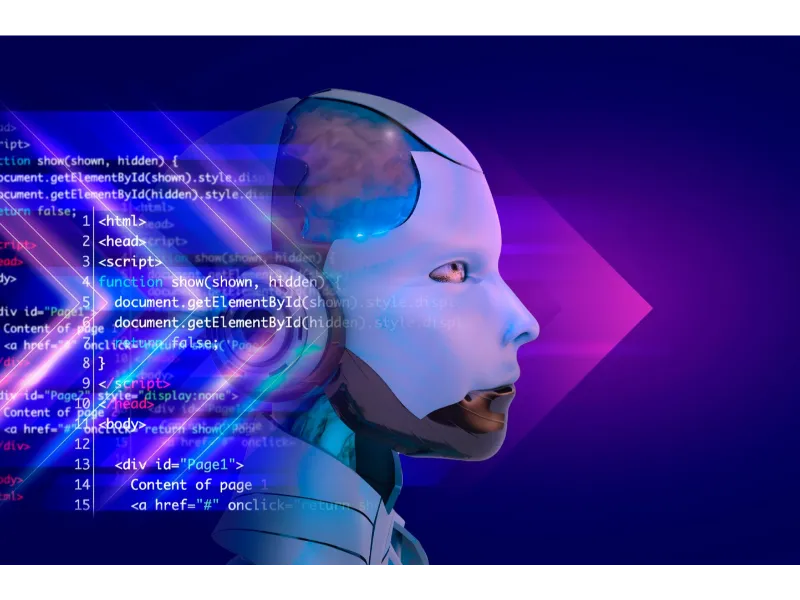- Intelligent agents are sophisticated programs capable of making decisions and providing services autonomously based on their environment, user inputs, and past experiences.
- Types of intelligent agents include simple reflex agents, model-based reflex agents, goal-based agents, utility-based agents, and learning agents, each with specific characteristics for problem-solving and decision-making.
- Examples of intelligent agents include AI assistants like Alexa and Siri, Google Assistant utilising machine learning and natural language processing, and autonomous vehicles using sensors and GPS navigation to navigate traffic independently.
In artificial intelligence, an intelligent agent (IA) is an entity that acts intelligently. It perceives its environment, takes autonomous actions to achieve its goals, and can enhance its performance through learning or acquiring knowledge.
What is an intelligent agent?
An intelligent agent is a sophisticated program capable of making decisions or providing services based on its environment, user inputs, and past experiences. These agents operate autonomously, gathering information either on a preset schedule or in response to user prompts. Often referred to as bots, short for robots, intelligent agents utilise user-defined parameters to search specific areas of the internet, extract relevant data, and present it to users periodically or on demand.
Data intelligent agents excel at extracting specified information, such as keywords or publication dates, using artificial intelligence and machine learning techniques. They employ various sensors like microphones and cameras for input and effectors such as fingers and wheels to interact with their environment. Actuators like speakers and screens are then used to deliver output to users. This process, where agents deliver information to users, is known as push notification technology.
Key traits of intelligent agents include adaptability through learning from experiences, real-time problem-solving abilities, analysis of success or error rates, and the use of memory-based storage for efficient data retrieval. These characteristics collectively make intelligent agents invaluable tools for tasks ranging from information gathering to dynamic decision-making.
Also read: Is data mining legal? Navigating the terrain

Types of intelligent agents
Simple reflex agents
These agents operate in the present state without considering past history. They respond based on the event-condition-action (ECA) rule, where an event triggers the agent to refer to a set of predefined rules for action.
Model-based reflex agents
Similar to simple reflex agents, these agents act based on rules but have a more comprehensive understanding of their environment. They maintain a model of the world that includes historical data to inform their actions.
Goal-based agents
Also known as rational agents, these agents go beyond model-based agents by incorporating goal information. They consider desirable outcomes when making decisions.
Utility-based agents
These agents, akin to goal-based agents, factor in utility measurements to evaluate potential scenarios. They assess each action based on criteria such as success probability or resource usage to maximise desired outcomes.
Learning agents
These agents continually improve their knowledge of the environment using learning algorithms. They receive feedback on performance measures and adjust their actions gradually to enhance efficiency and effectiveness, reflecting the evolution of AI systems.
Also read: Classification in data mining: What is it?
Advantages of intelligent agents
This definition of artificial intelligence strategically avoids several lines of criticism. Unlike the Turing test, it refrains from any reference to human intelligence. Consequently, it sidesteps debates about the authenticity of intelligence, whether it’s “real” or “simulated” (i.e., “synthetic” vs “artificial” intelligence), and doesn’t imply the presence of a mind, consciousness, or genuine comprehension (thus bypassing John Searle’s “strong AI hypothesis”). Moreover, it doesn’t attempt to draw rigid distinctions between behaviours deemed “intelligent” or “unintelligent”—instead, programs are evaluated solely based on their objective function.
Importantly, this definition offers several practical advantages that propel AI research forward. It provides a dependable and scientific method to assess programs; researchers can directly compare or integrate various approaches to specific problems by evaluating which agent excels at optimising a given “goal function.” Additionally, it establishes a common language for interdisciplinary communication, bridging fields like mathematical optimisation (grounded in “goals”) and economics (which adopts a similar concept of a “rational agent”).
Examples of intelligent agents
AI assistants, such as Alexa and Siri, exemplify intelligent AI agents that utilise sensors to perceive a user’s requests and autonomously gather data from the internet without the user’s direct input. They have the capability to retrieve information about their surroundings, such as weather conditions and time.
Google Assistant is another prominent example of an intelligent AI agent. Through the utilisation of machine learning and natural language processing technology, it can respond to users’ inquiries and complete tasks, such as initiating phone calls to contacts designated in voice commands.
Autonomous vehicles represent another form of intelligent robotic agents. These vehicles leverage sensors, Global Positioning System (GPS) navigation, and cameras to make real-time decisions in dynamic environments, enabling them to navigate through traffic autonomously.

